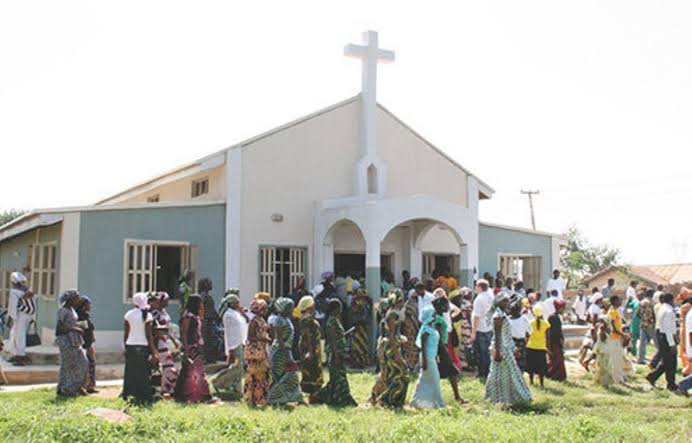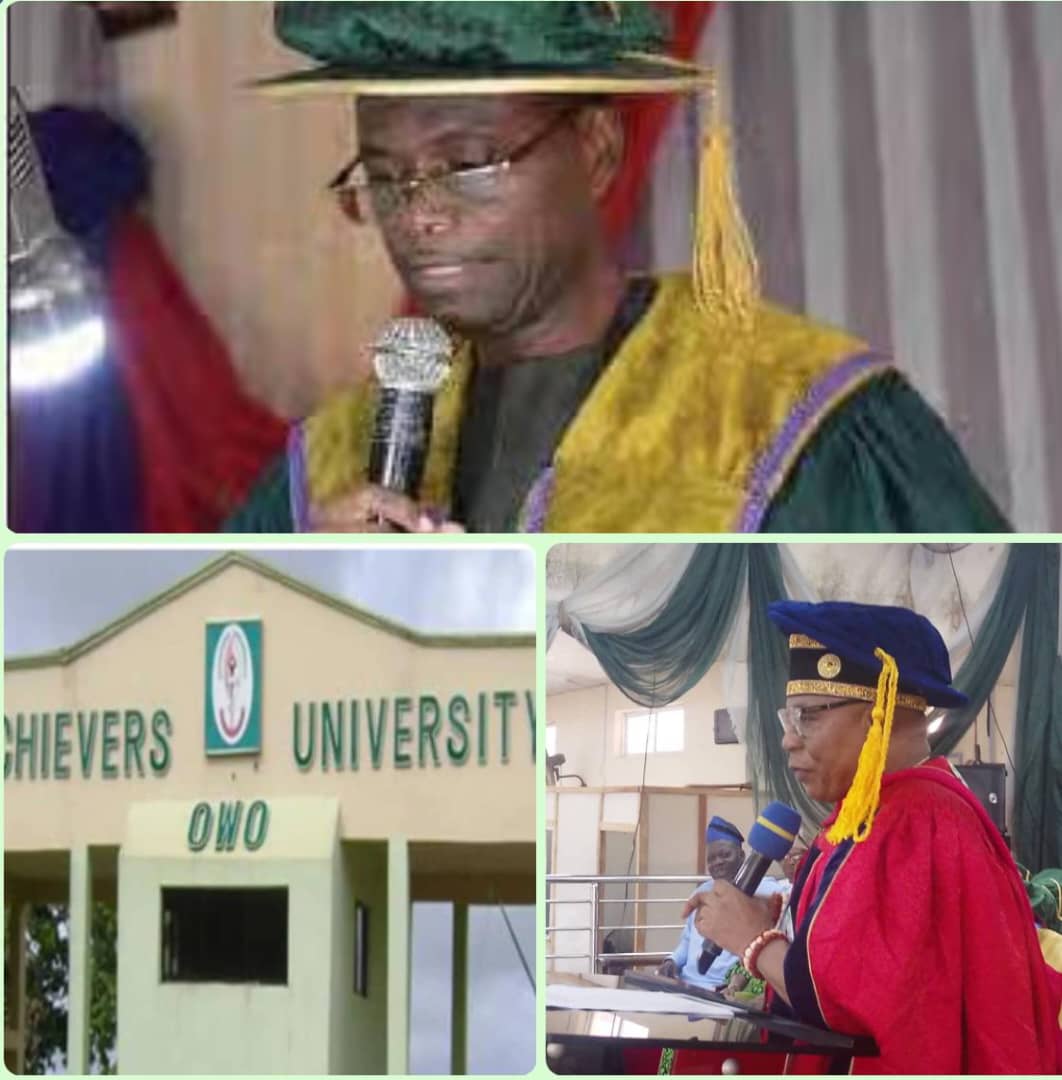
THE PROPER PRIESTLY BLESSINGS FOR THE POOR AND HUNGRY;
AN ADMONITION BY A NIGERIAN LAWYER TO THE NIGERIAN PRIESTS.
By: Barr. Femi Emmanuel Emodamori
For the Church, particularly for the Priests, the current economic challenges in our nation present a perfect opportunity to demonstrate the real Christianity practiced by the early Church, when no brethren was allowed to lack the basic necessities of life. According to Acts 2: 44-45:
“And all that believed were together, and had all things common; and sold their possessions and goods, and parted them to all men, as every man had need.”
James 2:15-17 expounded the above doctrine of the early Church by enlightening us that “If a brother or sister be naked, and destitute of daily food, and one of you say, be ye warmed and filled; notwithstanding ye give them not those things which are needful to the body; what doth it profit? Even so faith, if it hath not works, is dead, being alone.”
Proclaiming priestly blessings on people who came to the Church with empty stomachs without giving them food even when it is within our capacity to do so, is heresy. In Mathew 15:32-38, Jesus told His disciples that “I have compassion on the multitude, because they continue with me now three days, and have nothing to eat: and I will not send them fasting, lest they faint on the way…and he took seven loaves and the fishes, and gave thanks, and brake them, and gave to his disciples, and the disciples to the multitudes. And they did all eat, and were filled: and they took up of the broken meat that was left seven baskets full. And they that did eat were four thousand men, beside women and children.”
There is no better time than now for the Church to start giving back to the brethren, and not just preaching that the poor brethren should continue giving to the Church in order to access divine blessings. And for churches that are already doing that, one must commend them for practicing true Christianity.
Preaching the usual sermons like “Things are tight because you don’t pay tithes” may not be expedient at the moment. Such sermons, which many rightly or wrongly see as money-mining strategy for some priests who are living large while the vast majority of their brethren are becoming increasingly destitute, may even challenge the foundation of the faith of those who have been religiously paying their tithes but yet to see the increase upon increase of blessings that their stores would no longer be able to contain, as promised in Malachi 3:10. Make no mistakes about it; God is not a liar.
Numbers 11:29 declares that “God is not a man, that he should lie; neither the son of man, that he should repent; hath he said, and shall he not do it? Or hath he spoken, and shall he not make good it good?” Hebrews 6:18 also declares that it is impossible for God to lie.
Tithe opens doors of blessings and favour. My personal life is full of strange testimonies of such blessings and favour. But there are things far more important than tithes and offerings when it comes to the spiritual triggers for divine blessings and exaltation of the poor.
It is time for the Nigerian Lawyers to counsel the Nigerian Pastors on some of those things, after all, both the Law and the Prophet share the same prophetic grace, according to Luke 16:16. What are those more important things?
In Mathew 23:23, Jesus declared: “Woe unto you, scribes and Pharisees, hypocrites! For ye pay tithe of mint and anise and cumin, and have omitted the weightier matters of the law, judgment, mercy, and faith: these ought ye to have done, and not to leave the other undone.” Judgment, mercy and faith are far more important matters of the Law than tithes and offerings! Jesus said so, not me.
If tithes and offerings could bless and lift the poor out of poverty as we preach, then, justice, mercy and faithfulness or righteousness would definitely exalt such individuals and the entire nation much faster, going by what Jesus Himself taught in Mathew 23:23. In fact, Proverbs 14:34 says “Righteousness exalts a nation…” It takes being upright to go up.
But what kind of faithfulness or righteousness is Jesus talking about in the above scripture? It is certainly not the idle faith usually expressed in the popular slogan that “God will do it”. As Bishop David Oyedepo succinctly puts it in page 66 of his Book, Success Systems, “God will do it” is the slogan of the indolent. “What must I do?” is the question (that) men of purpose ask.”
Jesus Himself provided an answer as to the kind of faithfulness He preaches as a means of assessing far greater blessings and economic emancipation than tithes and offerings. I found that in Luke 16:11-12, where Jesus declared that: “If therefore ye have not been faithful in the unrighteous mammon, who will commit to your trust the true riches? And if ye have not been faithful in that which is another man’s, who shall give you that which is your own?”
Many ‘Christians’ and men of other faiths (or no faith) are today looting our national treasury or stealing from their employers with equal zeal, in violation of the above scriptural admonition by Jesus. Some of them even pay tithes from what they steal.
One came to Shiloh 2023 (an annual spiritual gatherings of one of our Churches) to testify of how God made her a Minister of the Federal Republic of Nigeria. The next thing we heard after that was how billions of Naira meant for alleviating poverty in the nation disappeared under her watch as a Minister within just seven months in office.
So, preaching justice, transparency and accountability as our individual lifestyle, as a Church, in our corporate practice and as a nation, carries far greater blessings and positive multiplier effects on the poor and the entire nation than tithes and offerings. Reverend Martin Luther King fervently preached justice in America, and his messages lifted more people out of poverty and reproach in America than the tithes and offerings paid by the poor during his lifetime. He understood Mathew 23:23. The Chinese do not pay tithes, but they punish the slightest act of corruption with the most severe punishment.
Today, China is a prosperous nation, By contrast, generations unborn in Nigeria, one of the greatest nation of tithers, are almost irredeemably indebted to China. God is no respecter of persons, race or religion. God is a Spirit, and the best way to worship Him is by being truthful, according to John 4:24.
Transparency and accountability is not just a political slogan. Jesus reveals it as the most potent spiritual access to true wealth and prosperity. It would lift both individuals, the Church, the corporate world and the entire nation out of poverty faster than any economic recovery plan. That explains why Section 15:5 of the Constitution of the Federal Republic of Nigeria, 1999 (as amended) says “The State shall abolish all corrupt practices and abuse of power.” That provision of the Constitution is one of “the weightier things of the law” that Jesus mentioned in Mathew 23:23.
Until corruption and abuse of power goes, the security and welfare of the people which Section 14 (2) (b) of the Constitution says “shall be the primary purpose of the government” would never be successfully activated, just as Mathew 23:23 teaches us that we cannot access true prosperity unless and until we cultivate the spirit of faithfulness, transparency and accountability in anything and everything entrusted to us.
As my learned friend, Apostle Paul, declared in 2 Corinthians 1:12, “For our boast is this, the testimony of our conscience, that we behaved in the world with simplicity and godly sincerity.” The only way we can get it right is to do it right and practice what we preach.
E-signed
Femi Emmanuel Emodamori
(A Lawyer writes from Akure on Sunday February 18, 2024)










